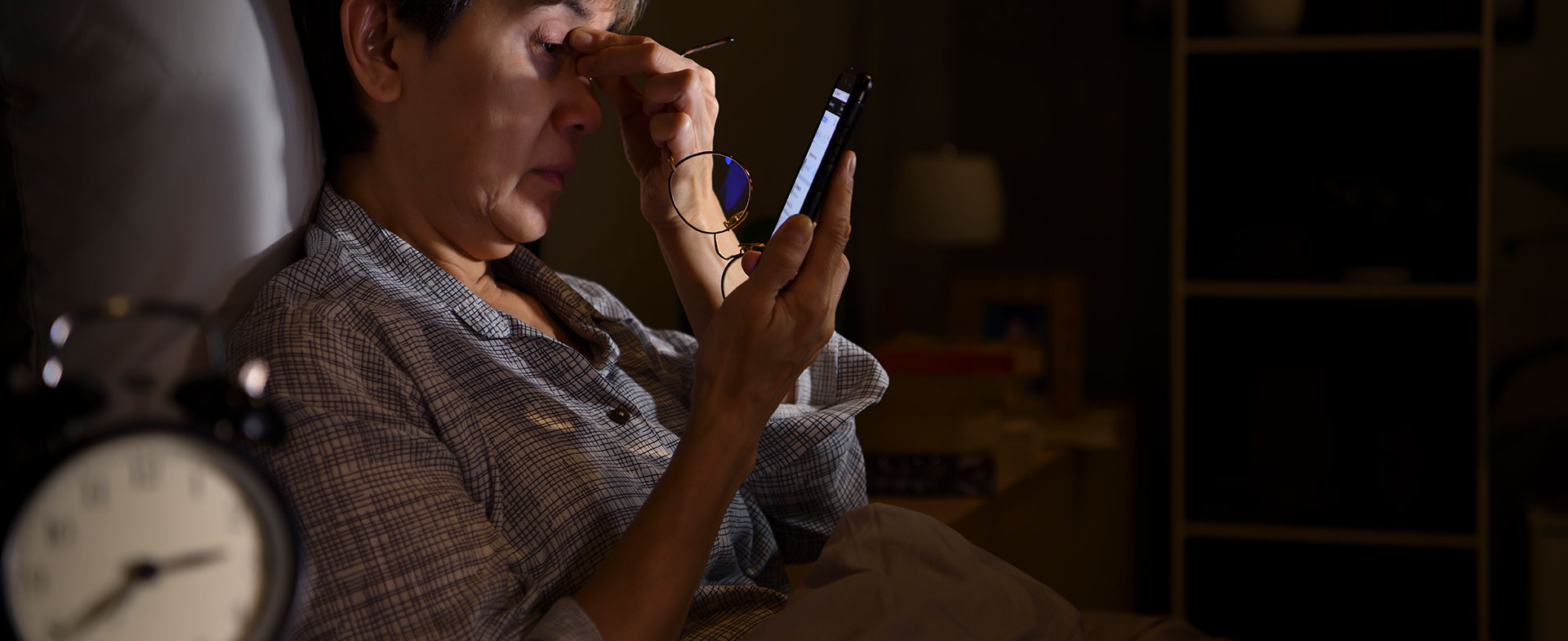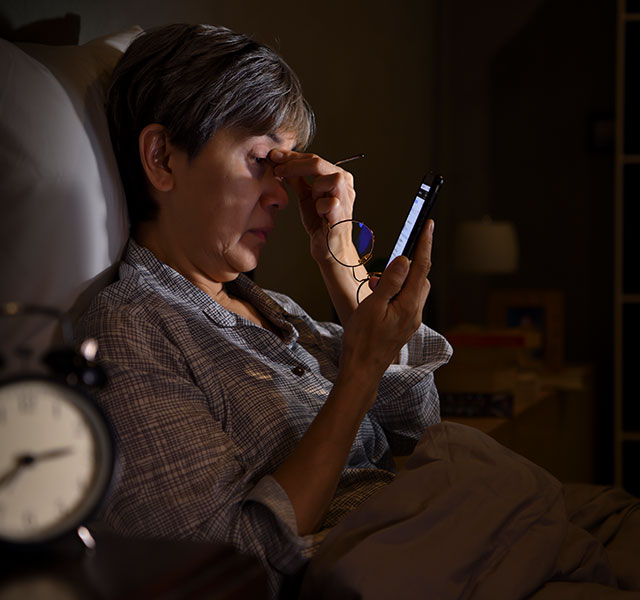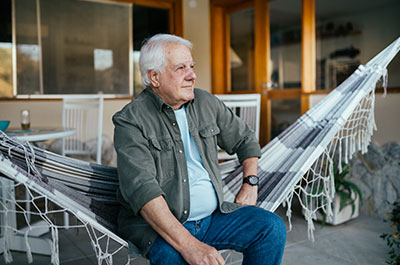Cancer can seem like a bad daydream, causing insomnia in exhausted people. About 50% of cancer patients experience sleep disturbances triggered by a combination of factors. Medications such as steroids and chemotherapy can be sleep stealers. Stress, unemployment and lifestyle changes due to the COVID-19 pandemic are also culprits.
Common Causes For Cancer-Related Insomnia
“Pain from cancer or treatment can interfere with sleep,” says Michael Ryan, Psy.D., clinical director of cancer support services at the Henry Ford Cancer Institute. “To help remedy this, take your pain meds, do deep-breathing exercises, start relaxation therapies and engage in other healthy distractions. Discuss medication issues with your care team.”
The lack of a normal work routine can also lead to sleepless nights. “Try to keep a daily schedule,” says Dr. Ryan. “Include daily exercise and relaxing evening activities (puzzles, reading, baths) into your routine.”
Electronic devices, anxiety and discussions about money can be overstimulating. Turn off electronics at 8 p.m. (They emit blue light, which can trick your brain into thinking it’s daytime.) Postpone money talks until morning. Instead, meditation, deep breathing, journaling, yoga or prayer can combat stress and facilitate sleep.
Some foods can also make you uncomfortable at bedtime. Avoid white bread, rice, pasta and sugary snacks before you go to bed. Eat smaller meals. Pass on the caffeine and alcohol—both of which can interfere with sleep hours after you’ve consumed them—and try milk or herbal tea instead.
The Great Nap Debate
Daytime grogginess caused by nighttime sleeplessness is tricky to navigate. In some cases, napping can help. For example:
- Short power naps lasting not more than 20 minutes can fully restore cognitive function according to NASA researchers. Try it.
- Long healing napsof three hours may be required for patients fatigued by cancer or treatment. If insomnia occurs, reduce your naptime.
If you’re using naps as an avoidance or procrastination tactic, however, it may be a sign that you’re depressed or having difficulty coping. Plan to engage in activities to combat depressive symptoms (gardening, going for walks, dancing—whatever it is that brings you joy) and consider professional help.
In some cases, no naps may be the best option. Experiment to see what works for you.
Sweet Dreams—Eventually
If you’re still having trouble sleeping, keep a sleep journal to accurately record and describe your problems and what you’re feeling. That way, you can give your care team as much information as possible. Undiagnosed sleep apnea or other problems might be the culprit.
Learn about the cancer support services—emotional, physical and spiritual—that can help guide your cancer treatment and recovery at Henry Ford.
Michael Ryan, Psy.D., is the clinical director of cancer support services at the Henry Ford Cancer Institute.



